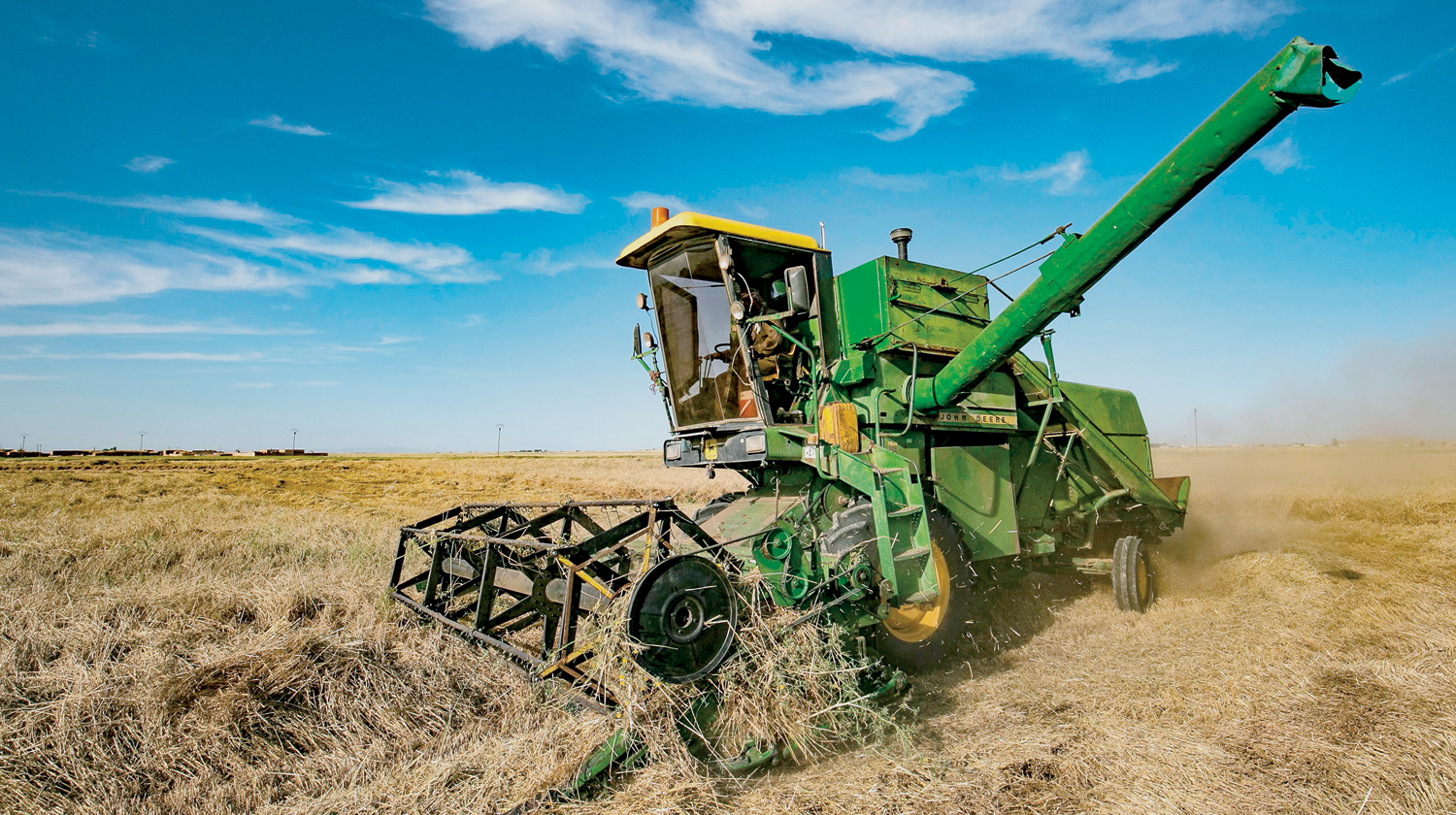

Amuda, Syria: Gazing over his wheat field in northeastern Syria, farmer Adel Othman expects a bumper crop this year, but two rival authorities squabbling over his harvest have dashed his enthusiasm.
After successive droughts and eight years of civil war, both the local Kurdish authorities and the Damascus regime are desperate to buy up his region’s produce to feed their people and maintain the peace.
In a country where millions depend on bread as a staple food to survive, both want the wheat grown in the country’s northeastern breadbasket region of Hasakeh.
Farmers in the Kurdish-held region like Othman have been caught up in the middle, with only two potential buyers, neither offering a satisfactory price. Our “livelihood should not be transformed into a political bargaining chip,” said the 55-year-old, his sky-blue shirt streaked in places with dry earth.
The regime is offering a better price, but the Kurds have said no wheat can leave the region under their control.
“We’ll sell our crop to the highest bidder,” Othman said in Kurdish by his field in the area of Amuda.
“In the end, a farmer needs to make a profit,” he said, his short black hair slightly unruly above a thick moustache.
Farmers are especially eager to sell their crop to make up for poor harvests in previous years, but also to save them from fires — some claimed by the IS group — that have ravaged fields in the region.
Long marginalised, Syria’s Kurds have largely stayed out of the eight-year civil war, instead setting up their own institutions in areas under their control.
But they did lead the US-backed fight against IS in Syria, and are now hoping that will give them leverage in retaining a degree of autonomy in the northeast.
“The Kurds do not want to let wheat out because the production is barely enough to feed the local population,” Syria expert Fabrice Balanche said.
“If the wheat went off to Damascus because of the higher price, it would cause a food crisis,” he added.
According to the World Food Programme, 6.5 million people in Syria are “food insecure”, or do not know where their next meal is coming from. This year Syria is anticipating an ample crop yield after abundant rain, following a wheat harvest last year that was the worst since 1989.
The Syrian government is expecting 850,000 tonnes of wheat from Hasakeh. The head of the Damascus government’s agriculture office in Hasakeh, Amer Sello, said he expected to snap up most of the province’s harvest.
“Government cereal reception centres will see growers flock because of the attractive prices,” he said.
The Kurds last month increased their buying price for a kilo of wheat from 150 to 160 Syrian pounds ($0.37), but that is still not enough to compete with the regime’s offered 185.
The Kurdish grain authority chief, Salman Bardo, accused the regime of announcing its higher price “to sow discord between the people and the autonomous administration”. — AFP
Oman Observer is now on the WhatsApp channel. Click here



